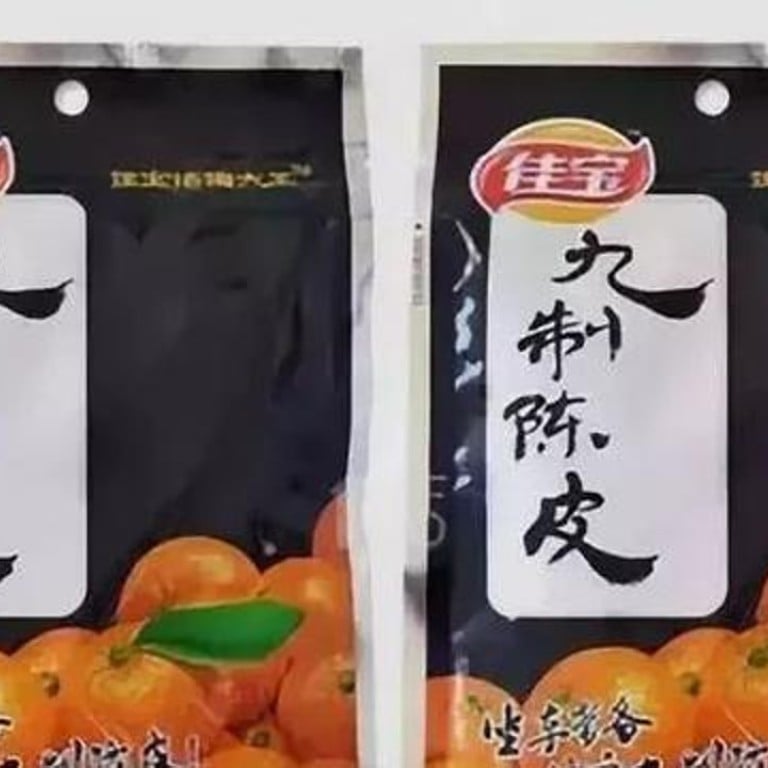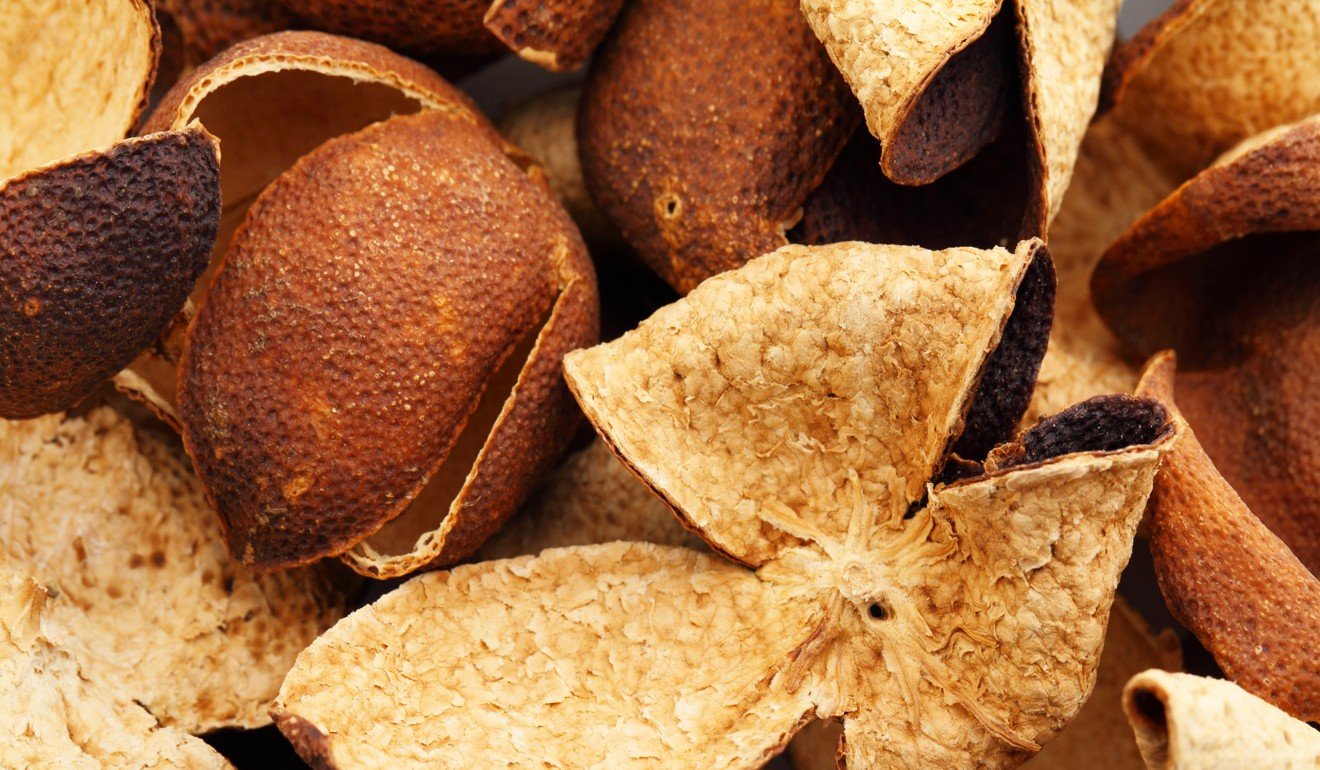
China’s popular dried tangerine peel recalled after high levels of lead found in snack also sold abroad
The brand of preserved snack, Jiabao jiuzhi chenpi, is available in countries including Malaysia, Singapore, Australia and the United States
Excessive traces of lead have been found in a popular brand of preserved tangerine peel sold in China, Malaysia, Singapore and other parts of the world including the United States.
However, the manufacturer has said the possibility of any overseas contamination is low.
Samples of Jiabao jiuzhi chenpi, a brand of the popular Chinese snack, were found to have up to eight times the acceptable level of the toxic metal, the State Administration for Market Regulation revealed last week.
Inspections were conducted twice – in March and May, the authorities said.
The March inspection found traces of lead seven times higher than the accepted levels, while the May inspection found amounts of the metal six times that of the standard, according to the market watchdog.
Is rainbow trout the same as salmon? China says yes despite food safety fears
By China’s standards, amounts of lead found in food products cannot exceed 1mg/kg. The first test showed 8mg/kg while the second was 6.69mg/kg, the authorities said.
Lead, a naturally occurring element, is toxic to humans in large amounts and can affect multiple body systems.
It is particularly harmful to young children, especially when consumed, attacking the brain and central nervous system to cause coma, convulsions and even death, according to the World Health Organisation.
The Jiabao brand of preserved tangerine peel is produced in southern China’s Guangdong province and is widely available around the nation.

It is also sold overseas, including in Singapore, Malaysia, Australia and the United States, according to its manufacturing company, Guangdong Jiabao Group.
The firm said the two problem batches were made in December and January using orange peel from a one-off supplier.
“Because it was the Lunar New Year and our regular partner had temporarily ceased supply, we decided to buy the raw material from others,” the company’s marketing director Liu Chaoliang said on Wednesday.
“That said, it is certainly our fault to have overlooked the quality problem in our raw material.”
The problem batches totalled only “dozens of boxes” of small packets, each containing 24g of peel, Liu said.
He did not say how many packets of peel were contained in each box, but believed the possibility that any from either of the two batches had made it abroad was small.
In a statement last week, Guangdong Jiabao Group said it had notified retailers of the problem in April when the first results were known. By mid-May all substandard products which had been recalled and incinerated. The second inspection occurred on May 8, it said.
“Because the product often goes through several sellers before it reaches the end consumer, we did not manage to recall all of the problematic ones in time after the first inspection [in March],” Liu said.
“The second inspection occurred during our recall and the samples collected happened to be from the same batch.”
Chinese officials seize hundreds of kilos of expired meat and unlabelled fish in latest food safety crackdown
Making preserved tangerine peel involves soaking the peel in brine and alum for two days, rinsing it in hot water and then preserving it in large quantities of salt and plum for another couple of days.
The product is then dried and stewed with a substance known as licorice juice, or succus liquiritiae.
Guangdong Jiabao said it would purchase its own machines to check for heavy metals in each batch of its products before releasing them to the market in future.
The company, which also produces candied fruit, pickles and beverages, does not directly export its goods at present but has vowed to enter the international market.
In July, its president Yang Wanru told Guangdong Television that the firm planned to bring “good Chinese snacks” to the world.
“We will bring good products to all Chinese people around the world. We will be bolder and develop our market outside China,” she said.

